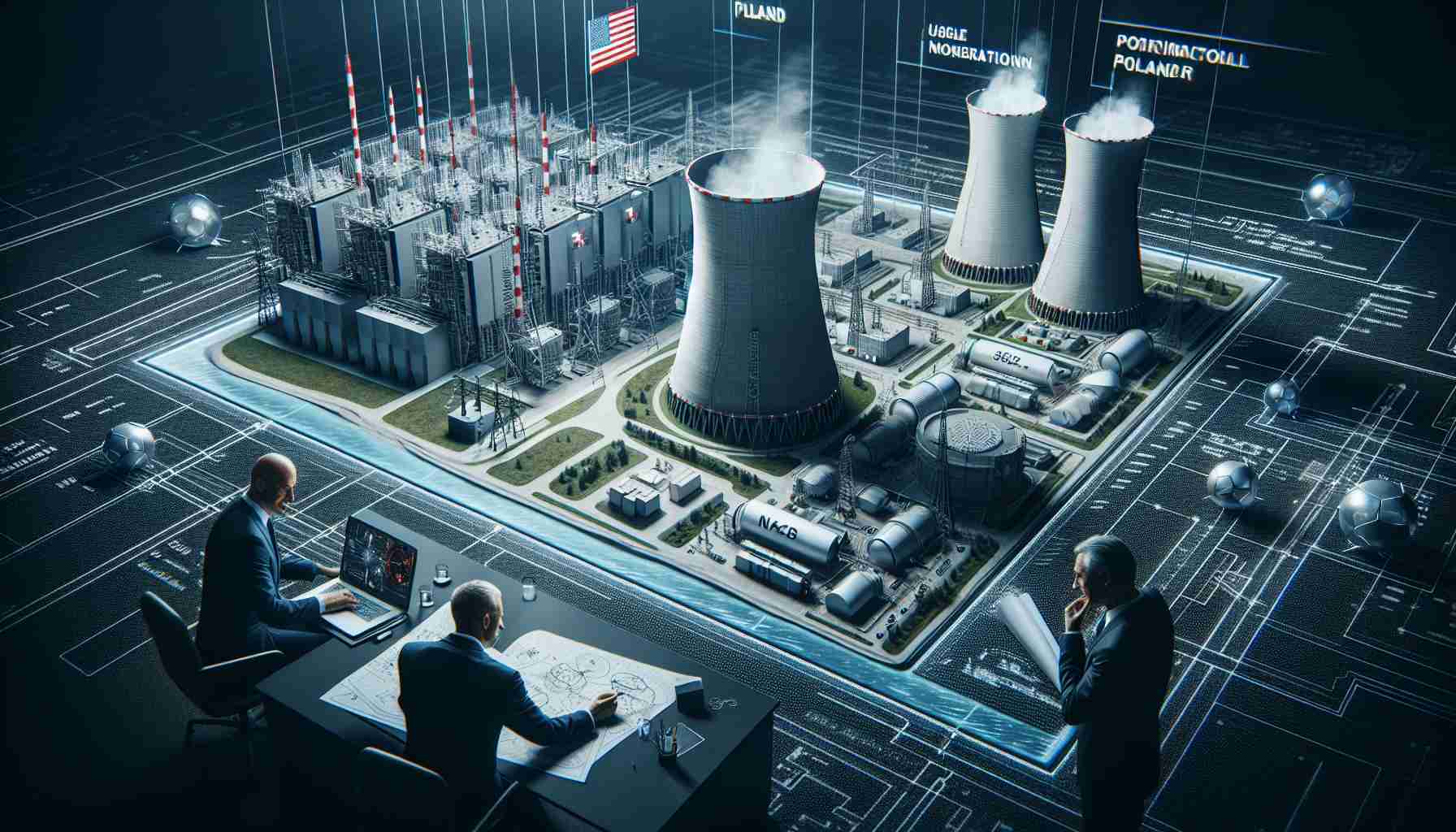As the world grapples with climate change, Vietnam is boldly stepping into the future with plans to re-evaluate its nuclear energy strategy. Previously shelved in 2016 due to financial and safety concerns, the renewed interest in nuclear energy reflects Vietnam’s commitment to sustainable development and meeting its burgeoning energy demands.
Currently reliant on coal and hydroelectric power, Vietnam is seeking to diversify its energy portfolio. The inclusion of nuclear power could help the country reduce its carbon footprint significantly. In the face of rapid industrialization and urbanization, the Vietnamese government is considering safer and more advanced nuclear technologies, such as Small Modular Reactors (SMRs). These offer a cost-effective and secure alternative to traditional reactors, providing a scalable energy solution.
Vietnam’s strategic location and economic outlook underscore its potential role in the regional energy dynamics. Collaborations with experienced global leaders in nuclear technology and adherence to international safety standards will be crucial for Vietnam to successfully integrate nuclear power into its energy mix.
Experts believe that if done right, nuclear energy could become a cornerstone of Vietnam’s green transition. By investing in nuclear technology, Vietnam is positioning itself not only to meet its energy needs but also to pioneer in adopting cutting-edge energy solutions in Southeast Asia. The future of Vietnam’s energy landscape indeed looks poised for a clean and innovative transformation.
Vietnam’s Nuclear Energy Ambitions: A Path to Sustainable Growth
Vietnam’s decision to revisit its nuclear energy strategy represents a pivotal moment for the nation in addressing its energy needs and environmental challenges. The potential shift towards adopting Small Modular Reactors (SMRs) could significantly lower the country’s reliance on fossil fuels, thereby reducing greenhouse gas emissions. As Vietnam undergoes rapid industrialization and urbanization, the integration of nuclear power could serve as a crucial element in balancing economic growth with environmental responsibility.
Environmental Impact
The move towards nuclear energy could dramatically alter Vietnam’s environmental landscape. Currently dependent on coal, a major contributor to air pollution and carbon emissions, Vietnam’s energy sector is a key player in the country’s environmental challenges. By transitioning to nuclear energy, specifically through SMRs, Vietnam could diminish its carbon footprint. Nuclear power generates minimal direct CO2 emissions compared to coal-powered plants, thereby aligning with global efforts to combat climate change. The anticipated reduction in coal usage could lead to improved air quality and a healthier ecosystem.
Effects on Humanity
Embracing nuclear energy transcends environmental benefits, potentially transforming Vietnamese society. Energy security and access are fundamental to human development, impacting education, healthcare, and quality of life. With fewer power outages and a more reliable energy supply, communities could see significant improvements in socio-economic conditions. Furthermore, by investing in cutting-edge nuclear technology and establishing partnerships with global leaders, Vietnam could create thousands of skilled jobs, boosting local economies and fostering innovation.
Economic Implications
Vietnam’s strategic pivot towards nuclear energy represents a forward-thinking economic strategy. Initial financial commitments are substantial; however, the long-term economic benefits from reduced carbon taxes, energy security, and potential energy exportation are substantial. Moreover, as Vietnam emerges as a leader in Southeast Asia’s renewable energy sector, it could attract significant foreign investments, elevating its status as a regional clean energy hub. The adaptation of SMRs could offer scalable solutions for other developing nations, placing Vietnam at the forefront of energy innovation.
A Connection to the Future of Humanity
The decision to transition to nuclear energy also speaks to broader themes concerning the future of humanity. As the global community confronts escalating climate challenges, pioneering nations like Vietnam that innovate within their energy strategies can serve as benchmarks for others. Vietnam’s move could inspire a wave of nuclear adoption, emphasizing safety, sustainability, and technological advancement. With nations globally facing energy dilemmas, Vietnam’s potential success could influence global energy policies towards more sustainable paths.
Thus, Vietnam’s renewed nuclear energy strategy not only posits a possible environmental and economic rebirth for the country but also contributes to a paradigm shift in global energy approaches, aligning with the universal quest for a sustainable future.
Vietnam’s Nuclear Ambitions: A Gateway to Sustainable Energy
As Vietnam reconsiders its nuclear energy strategy, it’s crucial to explore the broader implications and potential that lay ahead in this ambitious shift towards a sustainable future. Here’s a closer examination of the new developments, trends, and insights that give Vietnam’s nuclear energy plans a promising outlook.
Advanced Nuclear Technologies: A New Era
Vietnam is not simply revisiting old nuclear strategies; instead, it’s considering the integration of cutting-edge nuclear technologies, such as Small Modular Reactors (SMRs). These reactors are not only more flexible and scalable compared to traditional nuclear plants but also promise enhanced safety features and lower initial capital costs. This shift to SMRs could position Vietnam as a leader in nuclear innovation within the region.
Environmental Impact and Sustainability
A transition to nuclear energy could significantly reduce Vietnam’s carbon emissions, currently exacerbated by coal dependency. By diversifying its energy mix with a clean alternative, Vietnam aligns itself with global sustainability goals, further strengthening its environmental commitments. This move exemplifies a strategic pivot towards reducing the environmental impact of energy production and supports Vietnam’s sustainable development goals.
Economic and Strategic Insights
Vietnam’s strategic location in Southeast Asia provides a unique opportunity to influence regional energy dynamics. By investing in nuclear capabilities, Vietnam can tap into a reliable source of energy that supports economic growth and industrialization. Furthermore, collaboration with experienced global leaders in nuclear technology will be vital. Adhering to international safety standards ensures not only operational safety but also engenders trust and partnerships in the nuclear sector.
Potential Challenges and Considerations
Despite the promising prospects, Vietnam’s renewed nuclear energy aspirations are not without challenges. Ensuring the safety of nuclear installations, securing the necessary investments, and maintaining strict regulatory compliance are crucial steps. Additionally, public perception and social acceptance play significant roles in the successful implementation of nuclear projects.
Market Analysis and Predictions
The global trend towards clean energy solutions suggests an increasing demand for innovative nuclear technologies like SMRs. Experts predict that as technology continues to evolve, these modular reactors will become even more cost-effective and efficient, further incentivizing countries like Vietnam to adopt nuclear solutions.
Conclusion
Vietnam’s exploration into nuclear energy represents a bold step towards a sustainable and diversified energy future. By embracing modern nuclear technology, Vietnam not only addresses its own energy demands but also exemplifies leadership in clean energy adoption across Southeast Asia. The potential benefits for Vietnam are vast—from environmental to economic, securing its role as a pioneer in the green transition. For more insights into global energy trends and innovations, visit International Energy Agency.
The source of the article is from the blog cheap-sound.com



